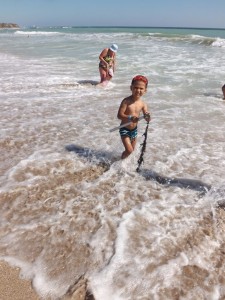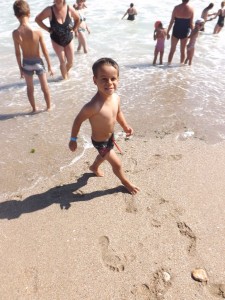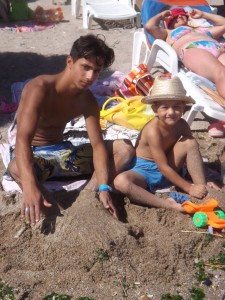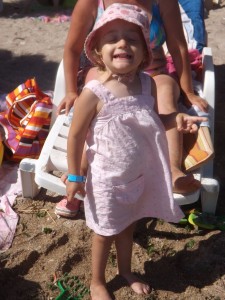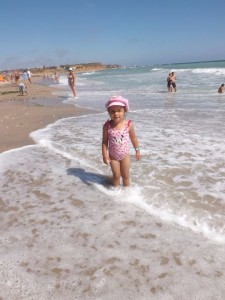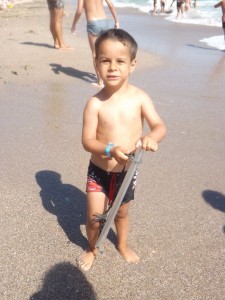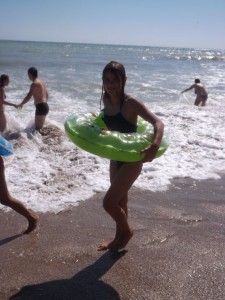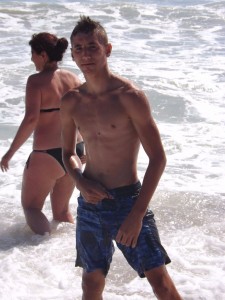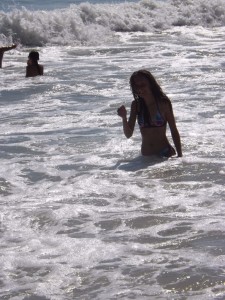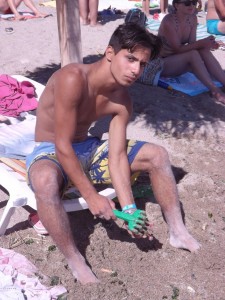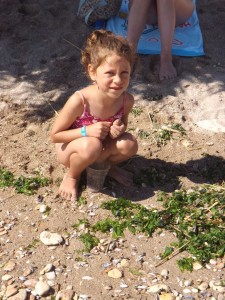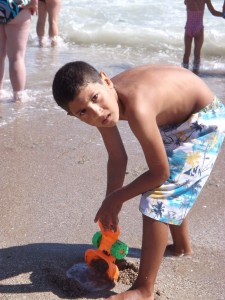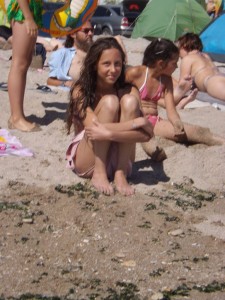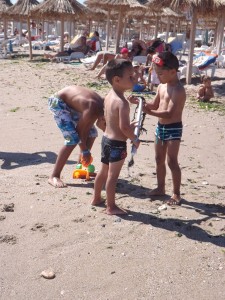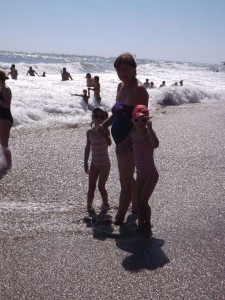Non Formal Education Methodology in Schools & High Schools – Project




Here we are representing a glimpse of the Friends of Romanian Children’s association houses.
Friends of Romanian Children was founded by Mary Gibson, a mother and grandmother

herself, who was so disturbed by the images that came out of Romanian orphanages after the 1989 revolution that she flew there to help, initially raising funds and sending out workers, eventually setting up the Friends of Romanian Children project to give these children love and a family life.
Experiential Learning Forum re-Edu Project involves volunteers from all over the world in intercultural interactions and creative activities with the purpose of improving the community and bringing self awareness to both children and adults.
We asked the children about their life, future plans and beautiful memories. Watch their answers from the video below and embrace the happiness and the warmth that they send to everyone around.


Experiential Learning Forum re-Edu Project
The Project debuted with the first Activity (Volunteering Team One) on the 4th of July 2020. 13 people – four locals from Harja and Poiana, with Ali, Dan and Diana from the organisation and Alexandra from Poiana Sarata, four youth from around Romania Gabriela and Roxana from Suceava, Ciprian from Craiova and Eryani from Bucharest, five youth from abroad Iliana from Germany, Ilyas from Latvia (Moroccan national), Vijay from Hungary (Indian national), Muhammad and Aqeel from Hungary (Pakisatan nationals).
Ecology Activities in Harja and Poiana Sarata
It appears that these days all we hear about is the tragic impact our actions are having on the planet. With hundreds of people suffering from hunger, millions of tons of waste getting into our oceans, hundreds of animal’s species entering into endangered category, it’s time for us to ponder and wake up before it gets too late. However, not everything is horrendous, there are still many organisations and individual people who are burning their midnight oil to keep the Mother Earth clean and sustainable. “Friends of Romanian Children” is one of those organisations. FoRC aims to transform Harja from a village to a trash-free touristic spot.

We usually observe that our rural areas, especially picnic spots, rivers, natural beauties which were made for us, are full of trash, garbage. The main reason behind this is the fact that we do not consider it our own property. We need to protect it because only “The Earth is what we all have in common.” —Wendell Berry. In order to put this awareness message into practice, Experimental Learning Forum gathers volunteers from all around the globe to start awareness and cleaning sessions, in which we gather around dozens of bags with trash from the village of Harja and Poiana Sarata, from the river bank and places where people usually do barbecue or spend time.
FoRC mainly focuses on arranging projects that aim to give social awareness about the adverse effects of pollution on the rural areas and the nature around it. It is the second week of the Experiential Learning Forum project, and the whole context that we created is all about learning by experience.
What we did?
Fifteen volunteers from different countries spent a total of 200 hours during 4 days, cleaning the area that was full of old clothes, bottles, pieces of plastic, bags, glasses and various objects that do not belong to nature.

What we became aware of?
ELF project helped our volunteers to become aware of undiscussed effects of the pollution on people’s and animal’s life and then chain reactions of those sufferings. Our volunteers are now fully aware of the fragility of our environment and importance of its protection.
What we propose?
Our team proposed to have at least one day per month for cleaning the village and also, after spotting the hot places for trash, we informed the municipal government to carry the garbage on a daily basis. Apart from that, our team posted the social awareness posters on the commonly visited places of village and talked to locals about the importance of keeping tha area clean.
What is the conclusion?
The conclusion is that every person should take care of the environment. Before doing anything which is harsh for the environment, just think of the consequences that other people and nature has to suffer because of that. Our volunteers answered some questions about this topic and shared some personal insights.



The ”Raibais kaķis” association, in cooperation with organizations from Italy (Mine Vaganti NGO), Bulgaria (Social HUB Association) and Romania (Friends of Romanian Children) starts the implementation of the project “EntrepRURAL socialy”. EntrepRURAL socialy is a strategic partnership project for the exchange of good practice. The project is financially supported by the ERASMUS+ Youth in Action program.
”EntrepRURAL socialy” is a Strategic Partnership in the youth field aimed at promoting the role of Social Entrepreneurship (SE), in combination with Non Formal Education (NFE) and practical learning, as a tool for enhancing social inclusion and employability of disadvantaged sectors of the youth population from rural area.

Social entrepreneurship is becoming more popular, as it is the best approach to develop, fund and implement solutions to social, cultural, or environmental issues. The project is focused on exchanging good practices between the countries involved in the project by promoting social entrepreneurship of young people in rural areas. The partnership is expecting three mobilities in Bulgaria, Latvia and Italy for youth (18-25 years old) who want to learn and focus on entrepreneurship and develop their business idea. Each mobility has a specific theme: the first one is personal growth (who I am as an entrepreneur), the send one is storytelling and how to use it in order to promote one’s social entrepreneurship and the third one is digital opportunities (how to use digital tools in social entrepreneurship). For each mobility and topic, a handbook will be created.
The first activity planned within the project is an international meeting of partners from 11 to 12 July in Latvia, within which the further course of the project will be planned. The first youth mobility of the project is planned in Bulgaria in November this year.
The project “EntrepRURAL socially” was funded with the support of the European Commission “Erasmus +: Youth in Action”, which is administered in Latvia by the Agency for International Youth Programs. This publication reflects the views only of the author, and the Commission cannot be held responsible for any use which may be made of the information contained therein.

PARTNERS:




“Experiential Learning Forum” Project, funded by the European Solidarity Corps (ESC) it’s been more than 
After that the volunteering team arriving in August prepared materials for the Festival, designed props, planned the map of the festival, greeted the artists and then went around to high schools. In other words, they tried out NFE tools with pupils, spoke about volunteering, solidarity and how the Festival happened. 

Both teams of volunteers were involved in local activities in Harja and Oituz. For example our volunteers taught youngsters English, ran activities with elders where they shared cultural traits of their home countries, helped the locals with gardening and works around the house. The volunteering teams even worked on the digital environments and social media to share photos, articles, edit videos, schedule posts on social media. They sent emails, designed and collected feedback from partners, artists, and youngsters they met. Would you join us?

In conclusion, the ELF project volunteering teams animated the village of Harja for 4 months, revitalising the village life and engaging the locals. We assume that the young volunteers who joined us, left Harja with their lives enriched, with new experiences and a greater understanding of what our mission stands for.
After all, what can be more enriching for young people than having such opportunities to volunteer abroad leave an impact in the local community as well as enriching their lives too….!?
PS: check the Video Summary of the first Experiential Learning Festival.

“ART of Changing”
Erasmus+ Mobility for Youth Workers in Romania – 2 Training Courses on NLP and Coaching techniques.
>the happening of events on video<<
The first mobility took place in Avrig, Sibiu a nd it fully focused on building up the foundation skills of a NLP Practitioner and Coach (Neuro Linguistic Programming). The second mobility focused on developing further the skills through practice within the group and complement with new methods that are applicable among the target groups. The groups was located in Slanic Moldova (Bacau). The trainer, Stephen Molnar has more than 30 years experience as a psychotherapist and NLP Master Trainer and his wealth of expertise in working with NLP and Coaching, simply generated an auspicious feedback from the participants in both training courses.

So who was there? We gathered 18 participants from 6 countries: Italy (MV International ENGO), Bulgaria (YoutHub NGO), Hungary (SABAI Training NGO), Poland (Grupa Dzialania NGO), Slovakia (SYTEV NGO) and of course the organiser from Romania (Friends of Romanian Children NGO). The selected participants work with young people with fewer opportuni

ties in their local communities. For example the participating youth workers from Bulgaria work in schools in Veliko Tarnavo and already started to disseminate those tools among fellow teachers and working with children in extra-curricular activities. The same is reported from by the youth-workers in Slovakia who work with the similar target group using the methods for creating guidance among students who are in their teenage period. Youth workers participating from Italy, Poland, Hungary and Romania are making use of the techniques in Erasmus+ trainings and exchanges as well as in organising workshops for school children in the areas of activity.

What happened?
The activities as you can see have been focused on non-formal education activities, the participants experiencing the NLP and Coaching methods themselves for maximising the learning and understanding of how those work. Activities varied from using forms of dancing, sound, mindfulness to applied NLP methods like Neurological Levels of Change or Time Lines. We reached a common conclusion with the other participating organisations and participants: the impact increases as the youth workers are going themselves through the personal development learning curve.
Maybe you are wondering if those people had any breaks or fun. Of course! In Avrig we went for long walks and reflection activities, we’ve built brid

ges and explored the nature. In Slanic Moldova we spent one day visiting the applicant organisation in Harja and organise activities with the children (in the Snow). We also celebrated the birthday of the Hungarian organisation leader and had fun with karaoke contest…half of the groups hustling to reach the only one microphone.
The Future Cooperation.
All the youth workers are in touch even now, after 3 months and some planning follow-up projects in the Erasmus+ framework (Italy and Romania TC for Youth Workers; Bulgaria School Exchange activity; Bulgaria and Romania TC for youth entrepreneurship) as well as European Solidarity Corps activities. At the reques

t of the participants and the organisations we are organising a follow-up project Training 4 Trainers for February 2019 deadline.
We are happy to have shared such a great opportunity with participants, exchanging ideas, cultural backgrounds, cooperation, dances, food and jokes.
Thank you to all of our partners, participants and local stakeholders who supported in implementing this project successfully!!!
Until Next time!
Check the video summary here.
Video credit: Vlad Pandichi
Photo credits: Beatriz Jordao and Narcisa Morosanu
SEASIDE
Many thanks to Olivia and Giani Zodila, from Bucharest, a wonderful family, good friends of ours, who have invited all of us to their B&b from Vama Veche, on the Black Coast. We went with all our children for a week and had a lovely time. Of course we were lucky with the weather too, and we had very warm water in the sea. And some big waves as you will see from the photos. We celebrated Denisa's 10th anniversary there, together with Daria's 3rd months anniversary(she is Olivia's and Giani's long expected baby)
